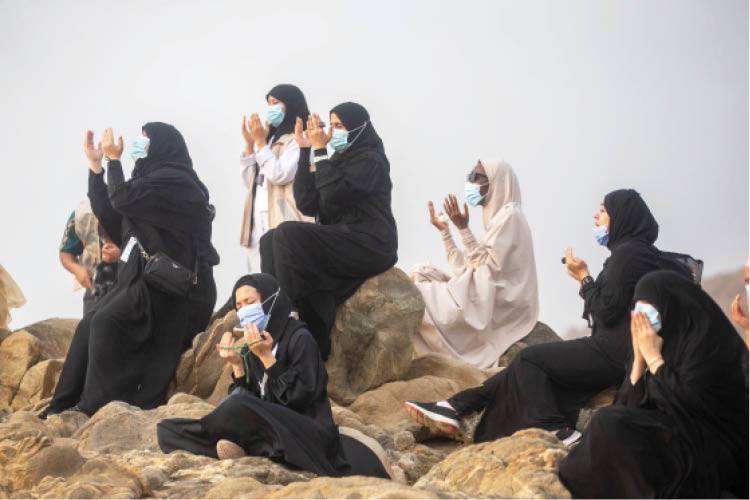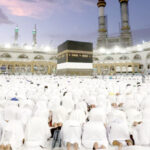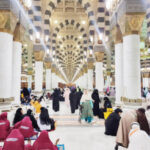In years before the coronavirus, some 3 million white-clad pilgrims from across the world flocked to Islam’s holiest sites to attend haj under Saudi Arabia’s blistering sun.
With the pandemic making large gatherings impossible, only a few thousand pilgrims – Saudis and foreign residents – are gathering this year on Mount Mercy on the plains of Arafat for the most important ritual. They share a common plea.
“Everyone will be praying for this pandemic to end, and for all the people of the world to see better months to come after all the suffering caused by coronavirus,” said Ammar Khaled, a 29-year-old Indian pilgrim who is an IT professional in Jeddah.
This year Saudi Arabia faces the challenge of keeping haj, a once-in-a-lifetime duty for every able-bodied Muslim who can afford it and a major source of income for the government, safe from COVID-19.
For the first time in modern history it has dramatically reduced the number of pilgrims to ensure social distancing measures are adhered to.
Mask-wearing pilgrims circled the Kaaba – a stone structure that is the most sacred in Islam and the direction which Muslims face to pray – in small groups of 50 people, each keeping a safe distance apart and accompanied by a health professional monitoring their movements.
With joy and tears, pilgrims spent the day on Mount Arafat, where the Prophet Mohammad gave his last sermon, raising hands in prayer to atone for their sins, their lips moving behind face masks.
At sunset, the pilgrims moved to the plain of Muzdalifa, where in previous years they gathered pebbles to throw at stone columns symbolizing the devil at Jamarat.
This year each pilgrim received sanitised pebbles in advance of the event today, the first day of Eid al-Adha or the feast of sacrifice.
In his sermon, Shaykh Abdullaah ibn Sulaymaan al-Manee urged Muslims across the globe to persevere in the face of the pandemic.
“My dear audience, life in this world does not remain free of difficulty, and this is why Allaah, the Most Exalted, instructed us to persevere,” he said.
“Adversities lead a servant of Allaah to recognize his Lord’s limitless ability, and to then return to his Lord with humility, penitence, and hope.
“However, no matter how difficult circumstances may become in this world, those difficulties do not last forever. Allaah’s mercy is always more expansive, and the relief He grants is always near. He promised to provide relief and ease,” the cleric added.

 Join Daily Trust WhatsApp Community For Quick Access To News and Happenings Around You.
Join Daily Trust WhatsApp Community For Quick Access To News and Happenings Around You.


